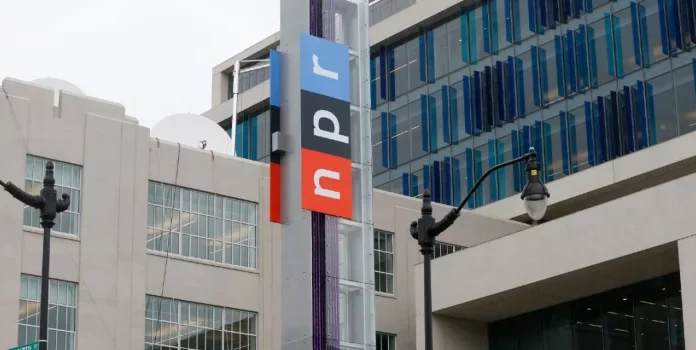(Molly Bruns, Headline USA) Online traffic for National Public Radio saw a massive decrease after the platform left Twitter in April.
According to the Post Millennial, NPR left the platform after Twitter CEO Elon Musk labeled its account as “state-affiliated media.”
In two months, NPR’s website went from 111.5 million page visits to 104.5 million—a 7-million visit decrease—pushing it down four spots in popularity to 143rd.
The bulk of the outlet’s traffic—about 45%—came from direct access to the website. Users searching for NPR via search engines and other means accounted for another 42%, while social media made up an estimated 6.5%.
Despite the fact that it was not on Twitter itself, 15% of NPR’s social-media traffic came from the platform via other users posting links to its content.
“They dig their own grave,” Musk tweeted in response to the recently published statistics.
They dig their own grave
— Elon Musk (@elonmusk) June 12, 2023
NPR CEO John Lansing argued that it would be a “disservice” to the journalists on his team to spread their reporting under what he believed to be false pretenses.
“I would never have our content go anywhere that would risk our credibility,” he stated, noting that he “would need some time to understand whether Twitter can be trusted again.”
NPR claimed to be a “private, nonprofit company with editorial independence.” Their website clarified that “1 percent of its $300 million annual budget” comes from the Corporation for Public Broadcasting.
NPR neglected to mention that they received millions in funding from other government funded organizations, such as colleges and universities, state and local governments and more.
When first applying the “state-funded media” label, Musk also pointed out that NPR stated that “federal funding [was] essential to public radio’s service to the American public and its continuation is critical for both stations and program producers, including NPR.”
Musk also bestowed the label on the Public Broadcasting Service. Officials affiliated with PBS argued that “public broadcasting [was] one of America’s best investments,” and subsequently joined NPR in their Twitter exodus.
The source of its funding notwithstanding, NPR’s credibility is strongly in question due to its unabashed allegiance to leftist talking points no matter how extreme.
The platform decided in 2021 that it would abandon its longstanding ethical policies that prohibited so-called journalists from openly engaging in political activism.
And it openly boasted of its decision to engage in a complete blackout of the Hunter Biden laptop prior to the 2020 election by applying the rational that it was a “waste” of listeners’ time.
Why haven't you seen any stories from NPR about the NY Post's Hunter Biden story? Read more in this week's newsletter➡️ https://t.co/CJesPgmGvo pic.twitter.com/jAi7PnpbZf
— NPR Public Editor (@NPRpubliceditor) October 22, 2020

